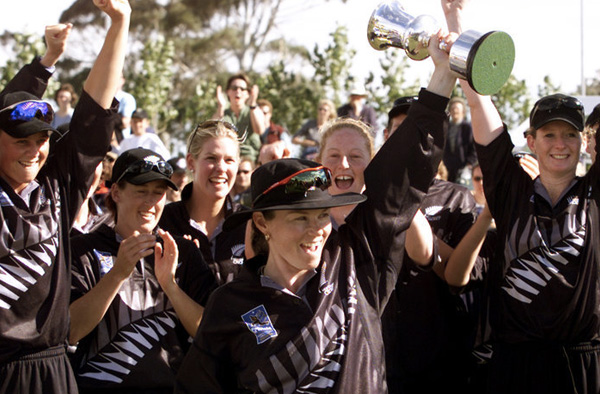On this day (December 23), 21 years back the people of New Zealand witnessed a history being made on their soil. Hosting its second World Cup (first being in 1982), almost every citizen of the country had just one dream that day, the dream to see the World Cup trophy staying in the country where it was to be awarded. Despite knowing that fulfilling the dream wasn’t going to be an easy task with already four-time champions by then Australia being their final opponent, the fans were confident of the White Ferns clinching the title.
#OnThisDay in 2000,
NZ defeated AUS by just 4 Runs to Win the World Cup Title.
Can they repeat the same next year? pic.twitter.com/KzgSuhWnAd
— Female Cricket (@imfemalecricket) December 23, 2021
The group stage which began on November 29 saw Australia as the only team that defeated New Zealand while they themselves remained unbeaten throughout the stage. Occupying the third and fourth spot were India and South Africa respectively, but both of them were knocked out in the semi-finals.
Facing each other for the second consecutive time in the World Cup Final, the White Ferns won the toss and made the Aussies bowl first at the Bert Sutcliffe Oval in Lincoln. The Australian bowler did their job quite well, bowling them out in 48.4 overs at just the score of 184 with Cathryn Fitzpatrick leading the attack with a three-wicket haul (2 maidens), Charmaine Mason and Terry McGregor taking a couple each giving away two and five maidens respectively while the remaining three wickets consisted of one each for Zoe Goss and Avril Fahey and a runout. Kathryn Ramel’s 41 were the highest for the White Ferns and the wicketkeeper Rebecca Rolls was the second highest with 34.
At the innings break, a target of 185 for the team which had scored two 200+ scores in the edition, seemed to be a matter of a few overs. It would have definitely brought confidence to the Australian camp as well as their fans to successfully defend the title while on the other hand, the home crowd would have gone through a huge range of emotions.
However, it is said that in a sport like cricket, nothing can be concluded until it is actually over no matter how good or bad the team is and the match being a World Cup final had two strong and best teams of women’s cricket fighting to be at the top. So, all possibilities were still alive.
Coming to the field with the confidence and the aim to create history, Emily Drumm and her team stunned the Australian players and the fans. Never did anyone think that chasing a target of 185 would be a struggle for the team that had three of the top six leading run-scorers of the tournament. What the White Ferns bowlers did that day was phenomenal, the team which has always been at the top had their captain Belinda Clark as their only hope until the 42nd over in which she was bowled after a lone fighting inning of 91 runs, and it was all but over for the Aussies as they 7 wickets down with 35 more to get. Though the last four batters tried their best to get as many runs as possible, running between the wickets but ended up being a boundary short to end the match in a draw. For the champions, Katrina Keenan, Rachel Pullar, and Clare Nicholson took two wickets each while Kathryn Ramel and Catherine Campbell got one each.

The 2000 World Cup title has been the only World Cup for the White Ferns to date. Having said that, New Zealand will be hosting the 2022 ICC Women’s World Cup which would be the first one in the country after the 2000 edition. So, taking inspiration from the 2000 winning squad, the team led by Sophie Devine would be looking forward to getting hold of their second World Cup title.

Loves all things female cricket